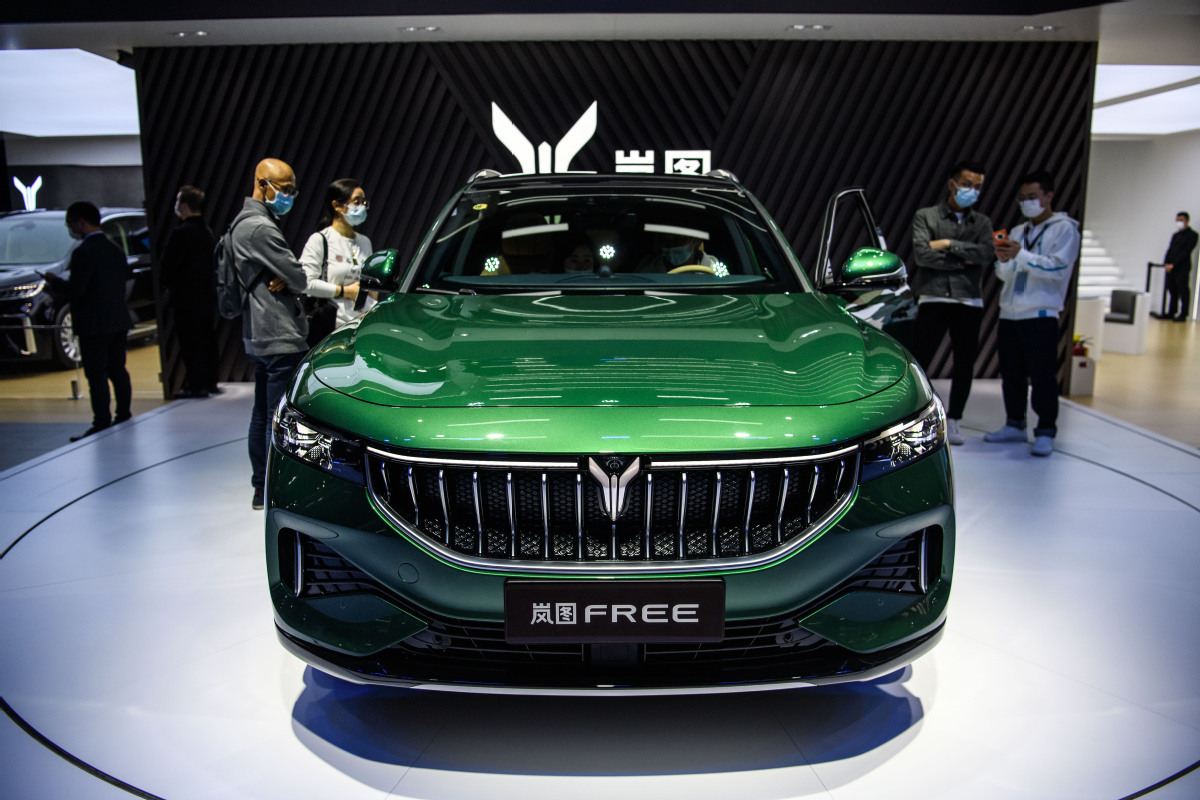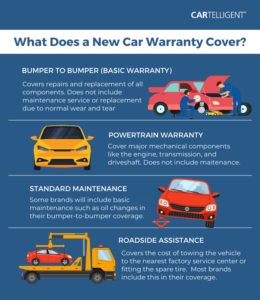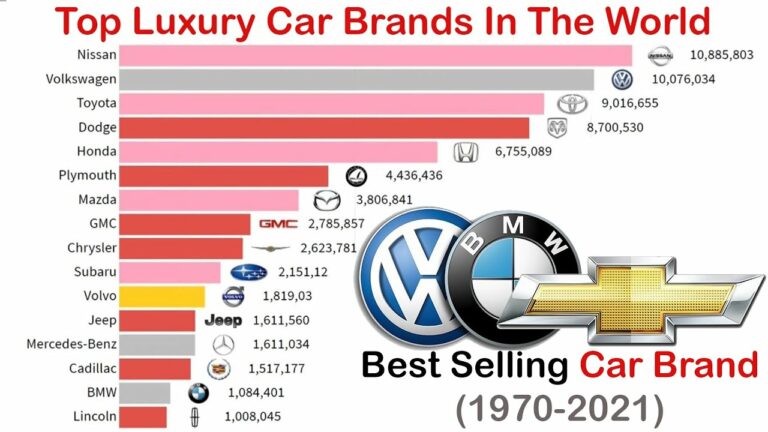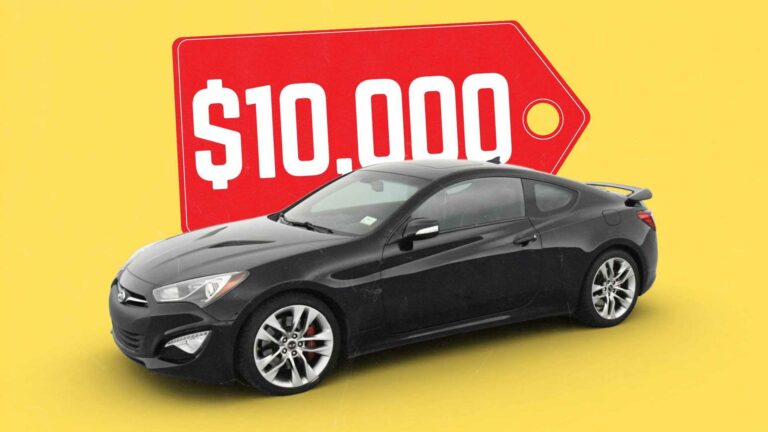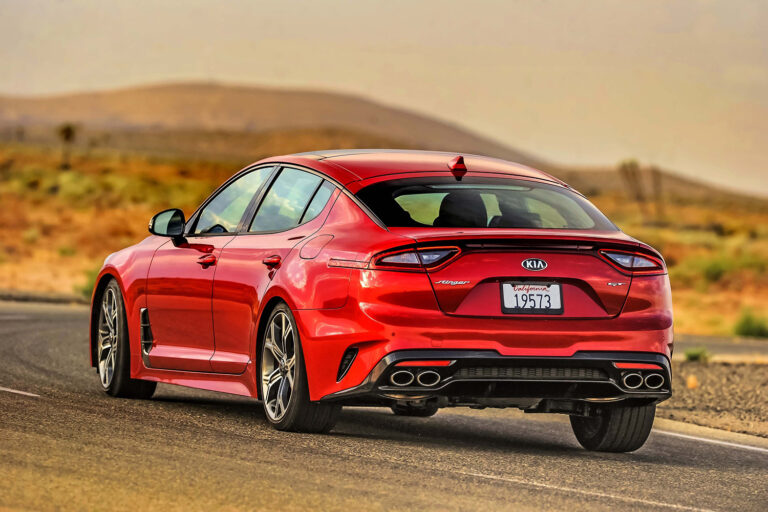What Are The Luxury Car Brands?
What Are The Luxury Car Brands? cars.truckstrend.com
The world of luxury cars is a captivating realm where automotive engineering transcends mere transportation, becoming an art form that blends unparalleled comfort, cutting-edge technology, breathtaking performance, and exquisite craftsmanship. For many, owning a luxury car isn’t just about getting from point A to point B; it’s a statement of success, a pursuit of driving pleasure, and an immersion in an exclusive lifestyle. But what truly defines a luxury car brand, and which names reign supreme in this elite segment?
This comprehensive guide will delve into the essence of luxury automotive brands, exploring what sets them apart, categorizing the diverse landscape of high-end vehicles, and offering insights into the considerations for those aspiring to join this exclusive club.
What Are The Luxury Car Brands?
Defining the Epitome of Automotive Excellence
At its core, a luxury car brand is distinguished by more than just a hefty price tag. It represents a commitment to excellence across several key dimensions:
- Superior Craftsmanship and Materials: Luxury vehicles are meticulously assembled using the finest materials, from hand-stitched leather and exotic wood veneers to polished metals and carbon fiber accents. The attention to detail is paramount, often involving significant human touch in the manufacturing process.
- Advanced Technology and Innovation: These brands are at the forefront of automotive innovation, introducing pioneering safety features, sophisticated infotainment systems, advanced driver-assistance technologies, and groundbreaking powertrain solutions long before they trickle down to mass-market vehicles.
- Exceptional Performance and Engineering: Whether it’s a silky-smooth ride, explosive acceleration, or precise handling, luxury cars deliver a superior driving experience. This is achieved through sophisticated engine design, advanced suspension systems, and rigorous tuning.
- Exclusivity and Brand Heritage: Many luxury brands boast a rich history, often spanning over a century, built on a legacy of innovation, racing success, and bespoke vehicle production. This heritage contributes to their prestige and exclusivity.
- Unrivalled Comfort and Refinement: Interiors are designed as sanctuaries, offering supreme comfort through ergonomic seating, advanced climate control, and superior noise insulation. Every aspect is tailored to enhance the occupant’s experience.
- Premium Customer Experience: Beyond the vehicle itself, luxury brands offer an elevated ownership experience, including personalized sales processes, exclusive service amenities, concierge services, and bespoke customization options.
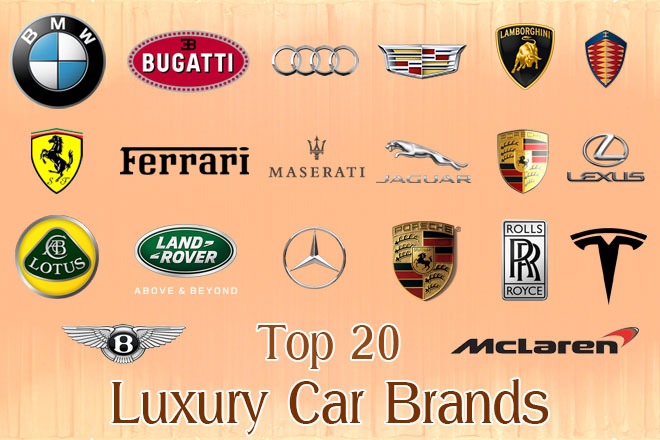
The Tiers of Automotive Opulence: Categories of Luxury Car Brands
The luxury car market isn’t monolithic; it’s a nuanced ecosystem with brands catering to different desires and price points. We can broadly categorize them into several tiers:
1. Mainstream Luxury Brands (Entry to Mid-Level Luxury)
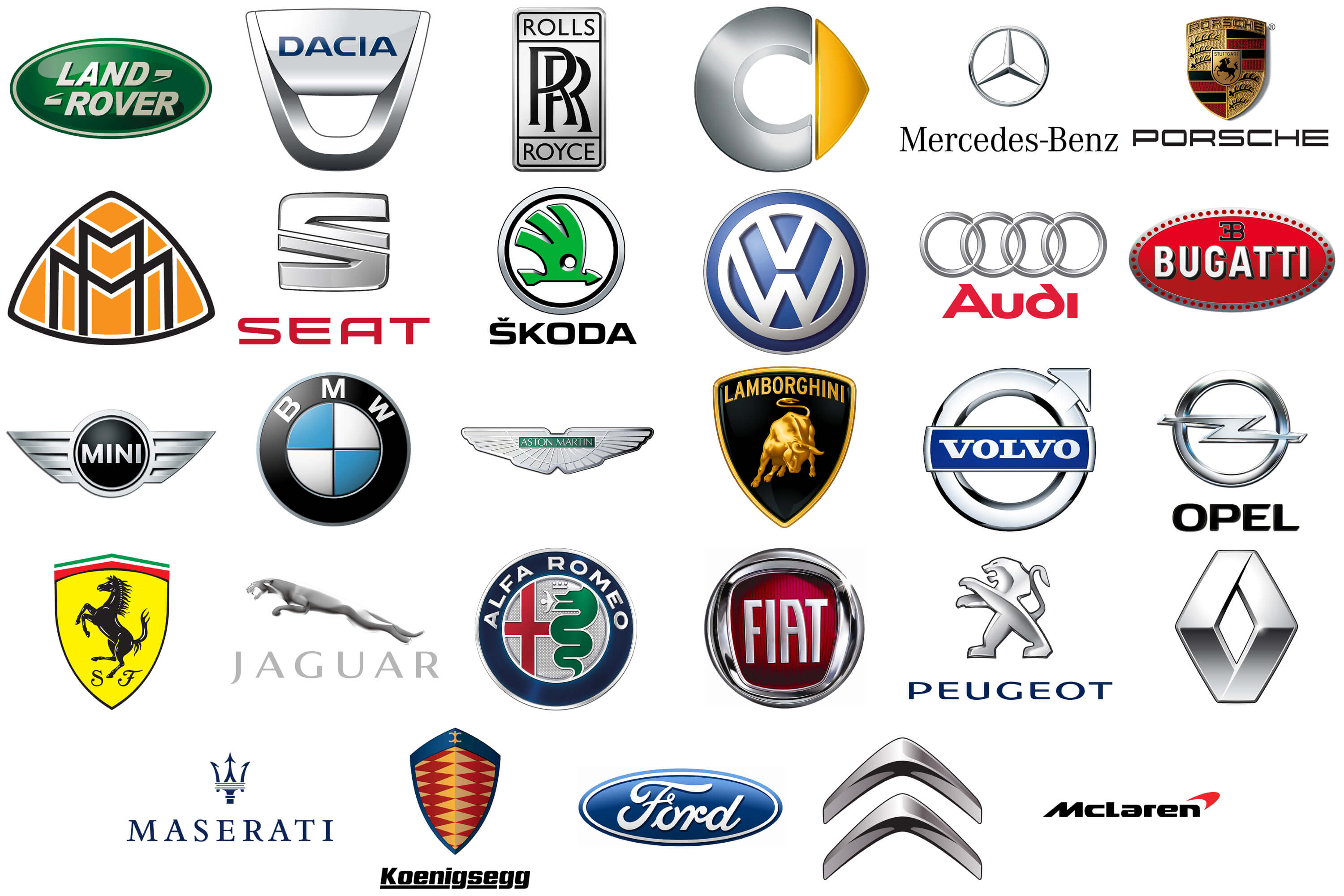
These brands offer a gateway into the luxury segment, balancing prestige with relative accessibility. They provide a significant step up in quality, technology, and driving dynamics from mainstream cars.
- Mercedes-Benz: A pioneer of the automobile, Mercedes-Benz is synonymous with comfort, cutting-edge technology, and a prestigious image. Their lineup ranges from compact sedans (A-Class, C-Class) to opulent S-Class flagships and high-performance AMG models.
- BMW: Known for its "Ultimate Driving Machine" philosophy, BMW excels in delivering sporty dynamics, precise handling, and powerful engines. Their range includes everything from the compact 2-Series to the executive 7-Series and a comprehensive SUV (X-Series) lineup.
- Audi: Part of the Volkswagen Group, Audi is celebrated for its sophisticated design, advanced Quattro all-wheel-drive system, and high-tech interiors. Their models, from the A3 to the A8 and Q-series SUVs, offer a blend of sportiness and refinement.
- Lexus: Toyota’s luxury division, Lexus, built its reputation on unparalleled reliability, refined comfort, and exceptional customer service. Their vehicles, like the ES sedan and RX SUV, offer a serene and dependable luxury experience.
- Genesis: Hyundai’s relatively new luxury marque, Genesis, has quickly established itself with striking designs, well-appointed interiors, and strong value propositions, challenging established players.
- Acura: Honda’s luxury arm, Acura, focuses on performance, advanced technology, and high reliability, offering models like the TLX sedan and MDX SUV.
- Volvo: Known for its minimalist Scandinavian design, pioneering safety innovations, and commitment to sustainability, Volvo offers a sophisticated and secure luxury experience with models like the S60 and XC90.

2. High-Performance & Executive Luxury Brands
This tier often overlaps with the mainstream luxury brands but focuses more intensely on exhilarating performance, distinct driving characteristics, and higher levels of exclusivity.
- Porsche: Arguably the most successful sports car brand in history, Porsche flawlessly blends thrilling performance with everyday usability. Iconic models include the 911, Boxster, Cayman, and the popular Cayenne and Macan SUVs.
- Maserati: An Italian brand steeped in racing heritage, Maserati offers a unique blend of elegant design, distinctive exhaust notes, and spirited performance, seen in models like the Ghibli, Quattroporte, and Levante SUV.
- Jaguar: A British marque renowned for its elegant design, luxurious interiors, and sporty driving dynamics, Jaguar offers a range of sedans (XF, XJ), sports cars (F-Type), and SUVs (F-Pace).
3. Ultra-Luxury & Exotic Brands
These brands represent the pinnacle of automotive luxury and performance, catering to an extremely affluent clientele. Production numbers are typically low, and customization options are virtually limitless.
- Rolls-Royce: The undisputed king of ultra-luxury, Rolls-Royce vehicles are bespoke masterpieces, hand-built to client specifications. They epitomize unparalleled comfort, silence, and prestige, with models like the Phantom, Ghost, and Cullinan SUV.
- Bentley: Blending British craftsmanship with immense power, Bentley offers a unique combination of sporting prowess and exquisite luxury. Models include the Continental GT, Flying Spur, and Bentayga SUV.
- Aston Martin: Synonymous with elegance, British charm, and powerful V8/V12 engines, Aston Martin is famous for its association with James Bond. Their vehicles, like the DB11 and Vantage, offer a thrilling yet sophisticated driving experience.
- Ferrari: The legendary Italian marque, Ferrari, is the epitome of high-performance exotic sports cars. Known for their screaming V8 and V12 engines, unparalleled driving dynamics, and iconic styling, they are built for pure driving exhilaration.
- Lamborghini: Characterized by aggressive, angular designs and outrageous performance, Lamborghini produces some of the most visually striking and powerful supercars on the planet, such as the Huracán and Aventador, alongside the Urus SUV.
- McLaren: A relatively newer player in the road car segment compared to Ferrari and Lamborghini, McLaren leverages its Formula 1 heritage to produce technologically advanced, lightweight supercars focused purely on performance.
- Bugatti: Owned by Volkswagen Group, Bugatti produces hypercars that push the boundaries of speed, power, and exclusivity, often costing millions of dollars and produced in extremely limited numbers.
Why Choose a Luxury Car? Practical Advice and Actionable Insights
The allure of a luxury car extends beyond mere aesthetics. Here’s why individuals opt for these premium vehicles and what to consider:
- Status and Image: For many, a luxury car is a symbol of achievement and success, projecting a certain image.
- Superior Comfort and Ride Quality: Long journeys become effortless in a luxury vehicle, thanks to advanced suspension, plush seating, and quiet cabins.
- Enhanced Performance: More powerful engines, sophisticated transmissions, and advanced handling systems deliver an exhilarating and confidence-inspiring drive.
- Cutting-Edge Technology: Be among the first to experience the latest in automotive innovation, from advanced safety suites to intuitive infotainment systems.
- Better Resale Value (for some models): While depreciation is a factor, some luxury models, particularly those from reliable brands or high-performance limited editions, can hold their value relatively well.
- Safety: Luxury cars often integrate the most advanced active and passive safety features, providing superior protection.
- Bespoke Options: Many brands offer extensive customization, allowing owners to truly personalize their vehicle.
Important Considerations Before Purchasing:
- Budget Beyond Purchase Price: Luxury cars come with higher insurance premiums, more expensive maintenance, and specialized parts. Factor in these ongoing costs.
- New vs. Used: Buying a used luxury car can offer significant savings, but ensure a thorough pre-purchase inspection and be prepared for potential higher maintenance costs as the vehicle ages.
- Depreciation: While some hold value well, many luxury vehicles depreciate faster than their mainstream counterparts, especially in the first few years.
- Maintenance and Servicing: Choose a reputable dealership or specialized independent mechanic experienced with your chosen brand. Servicing intervals and costs can be substantially higher.
- Personal Needs: Does the car truly fit your lifestyle? Consider practicality, fuel efficiency (for non-EVs), and parking accessibility.
- Test Drive Extensively: Experience the car in various conditions to ensure it meets your expectations for comfort, performance, and features.
Representative Starting Price Table for Select Luxury Car Brands
It’s crucial to understand that prices for luxury vehicles vary wildly based on model, trim level, optional features, regional taxes, and market conditions. The table below provides a representative starting Manufacturer’s Suggested Retail Price (MSRP) for a popular model from each brand, serving as a general guide. These are for base models and can increase significantly with options.
| Brand | Representative Model | Body Type (Example) | Estimated Starting MSRP (USD) | Key Highlight |
|---|---|---|---|---|
| Mainstream Luxury | ||||
| Audi | A4 | Compact Sedan | $42,000 | Sophisticated design, Quattro AWD, tech-rich |
| BMW | 3 Series | Compact Sedan | $45,000 | Driving dynamics, performance-oriented |
| Genesis | G70 | Compact Sedan | $40,000 | Striking design, value, refined interior |
| Lexus | ES | Mid-size Sedan | $43,000 | Reliability, comfort, quiet cabin |
| Mercedes-Benz | C-Class | Compact Sedan | $48,000 | Prestige, comfort, advanced tech |
| Volvo | S60 | Mid-size Sedan | $42,000 | Scandinavian design, safety, minimalist luxury |
| High-Performance & Executive Luxury | ||||
| Jaguar | XF | Mid-size Sedan | $55,000 | Elegant design, sporty handling |
| Maserati | Ghibli | Mid-size Sedan | $85,000 | Distinctive styling, unique sound, Italian flair |
| Porsche | Macan | Compact SUV | $60,000 | Sports car DNA in an SUV package |
| Ultra-Luxury & Exotic | ||||
| Aston Martin | Vantage | Sports Car | $150,000 | British elegance, powerful engines, bespoke feel |
| Bentley | Continental GT | Grand Tourer | $245,000 | Power, opulence, handcrafted interior |
| Ferrari | Roma | Grand Tourer | $225,000 | Iconic styling, exhilarating performance |
| Lamborghini | Huracán | Sports Car | $245,000 | Extreme design, raw power, track-focused |
| McLaren | Artura | Sports Car | $230,000 | Lightweight, advanced hybrid tech, F1 heritage |
| Rolls-Royce | Ghost | Full-size Sedan | $350,000 | Ultimate bespoke luxury, silent ride, prestige |
Note: Prices are highly approximate and subject to change based on model year, market, and specific configurations.
Frequently Asked Questions (FAQ) About Luxury Car Brands
Q1: Are luxury cars worth the extra cost?
A1: "Worth" is subjective. If you prioritize superior comfort, advanced technology, enhanced performance, exclusive features, and the prestige associated with the brand, then yes, they can be worth it. However, they also come with higher running costs.
Q2: Do luxury cars cost more to maintain?
A2: Generally, yes. Luxury cars use specialized parts, require specific fluids, and often have more complex systems that can be more expensive to repair. Labor rates at luxury dealerships are also typically higher.
Q3: Which luxury car brand is the most reliable?
A3: Lexus consistently ranks among the top for reliability in luxury segments, often outperforming its German counterparts. Acura is also known for strong reliability. However, reliability varies by model and year, so it’s always best to check specific model reviews.
Q4: What’s the difference between a luxury car and a premium car?
A4: The terms are often used interchangeably, but "luxury" typically implies a higher degree of exclusivity, bespoke craftsmanship, cutting-edge technology, and a more elevated ownership experience compared to "premium," which might focus more on high-quality materials and advanced features without reaching the same level of ultimate opulence or bespoke options.
Q5: Is buying a used luxury car a good idea?
A5: It can be, offering significant savings over new. However, be mindful of higher depreciation in the initial years and ensure a comprehensive pre-purchase inspection. Extended warranties are highly recommended for used luxury vehicles to mitigate potential high repair costs.
Q6: How do electric vehicles (EVs) fit into the luxury car market?
A6: EVs are rapidly integrating into the luxury market. Brands like Tesla (though debated by some as "luxury" vs. "premium tech"), Porsche (Taycan), Mercedes-Benz (EQ line), Audi (e-tron), and BMW (iX, i7) are producing highly desirable luxury EVs that offer silent power, advanced technology, and a futuristic driving experience. Even ultra-luxury brands like Rolls-Royce are moving towards electrification.
Conclusion
The world of luxury car brands is a diverse and dynamic landscape, offering an unparalleled blend of engineering prowess, artistic design, and exclusive experiences. From the accessible elegance of a Lexus to the bespoke grandeur of a Rolls-Royce, these brands continue to push the boundaries of what’s possible in automotive design and technology. Choosing a luxury car is a deeply personal decision, reflecting not just a preference for superior quality and performance, but often an appreciation for heritage, innovation, and a desire for an elevated journey, both on the road and in life. While the investment is significant, for many, the unique blend of comfort, prestige, and driving pleasure makes the luxury car experience truly incomparable.
